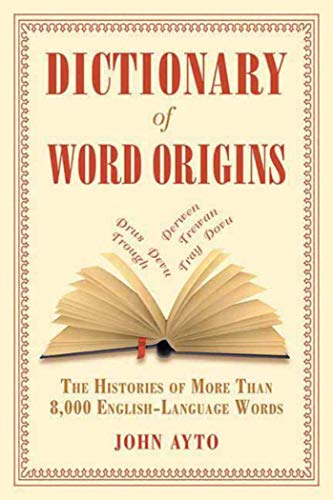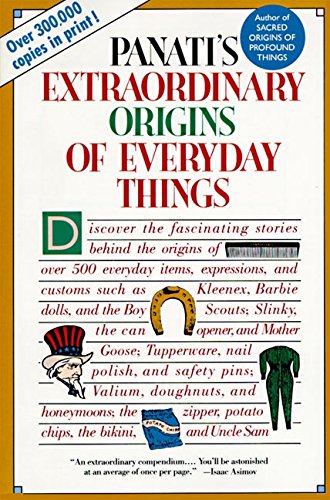When the English clergyman Thomas Fuller used the word unfriended in a letter dating from 1659, we can be pretty sure he wasn’t talking about his Facebook page. Instead, Fuller used the word to mean something like “estranged” or “fallen out,” a straightforward literal meaning that has long since “fallen out” of the language.
It’s to be expected that the words we use will change and develop over time as they begin to be used in original and innovative new contexts. But in some instances, these developments can lead to words gaining new meanings entirely different from their original implications—and the 20 words listed here have done just that.
 Dictionary of Word Ori...
Best Price: $6.67
Buy New $10.65
(as of 05:55 UTC - Details)
Dictionary of Word Ori...
Best Price: $6.67
Buy New $10.65
(as of 05:55 UTC - Details)
1. ALIENATE
Alienate, like alien, is derived from the Latin word alienus, which was used to describe anything that was unfamiliar, unconnected, or foreign. And when alienate first appeared in English as a legal term in the mid-1400s, it meant to transfer ownership of some property over to someone else, so that it is now “foreign” or “unconnected” to you. It’s from here that the modern meaning of “estrangement” or “distance” eventually developed.
2. AMBIDEXTROUS
Ambidextrous literally means “able to use both hands as well as you can use your right.” It certainly isn’t its earliest meaning, though: When it first began to be used in English in the mid-16th century, an ambidexter was someone who took bribes from both sides in a legal action, and as such ambidextrous originally meant “duplicitous” or “two-faced.”
 Why Do We Say? The Sto...
Best Price: $0.10
Buy New $5.00
(as of 06:15 UTC - Details)
Why Do We Say? The Sto...
Best Price: $0.10
Buy New $5.00
(as of 06:15 UTC - Details)
3. BUNNY
Bunny derives from bun—which was an old English word for a squirrel, not a rabbit.
4. CHEAP
The use of cheap to mean “low-cost” is a relatively recent invention that dates back about 500 years. That might not sound all that recent, but compare that to the fact that the earliest record of the word cheap in any context dates from the 9th century, when it originally meant something along the lines of simply “trade” or “bargaining” or “marketplace.” Likewise, tocheapen something originally meant to ask how much it costs.
 Scholastic Dictionary ...
Best Price: $1.95
Buy New $7.61
(as of 09:57 UTC - Details)
Scholastic Dictionary ...
Best Price: $1.95
Buy New $7.61
(as of 09:57 UTC - Details)
5. DUMP
Nowadays when we say we’re “down in the dumps,” we mean that we’re in a gloomy, low-spirited mood. But the original dump from which this derives was actually an old Tudor English word for an absent-minded daydream, or a dazed, puzzled state of mind, not a depressive one. In that sense, it probably has its roots in an earlier old Dutch word, domp, meaning “haze” or “mist.”
6. EXPLODE
The –plode of explode is derived from the same root as applaud—it originally meant “to jeer a performer off a stage.”
 Panati’s Extraor...
Best Price: $0.49
Buy New $9.98
(as of 05:55 UTC - Details)
7. FASCINATED
Panati’s Extraor...
Best Price: $0.49
Buy New $9.98
(as of 05:55 UTC - Details)
7. FASCINATED
The root of fascinated is the Latin word fascinus, which referred to a magic charm or spell. As such, its original meaning was “bewitched” or “enchanted,” not just “interested” or “enthralled.”
8. GAMUT
Long before we started using do-re-mi, the first and lowest note of a musical scale was calledut. And the lowest of all the uts was gamma ut (named for the Greek letter gamma), which eventually simplified to gamut. As time went by, the term gamut came to refer collectively to all the notes of a musical scale, and then to the full range of a musical instrument, from where the modern sense of “the full extent” or “scope” of something eventually derived in the mid-1700s.
9. HANDICAP
 Check Amazon for Pricing.
Check Amazon for Pricing.
Folk etymology claims the word handicap comes from injured soldiers returning home from war and, unable to work, being forced to beg on the streets with their caps in their hands. In fact, that’s completely untrue: Instead, handicap was originally an old form of trade or bartering, in which two trading parties would have their goods assessed by an impartial third person, who would check for any differences in value to ensure that both traded items were of equivalent price. If both traders agreed with his assessment, they would drop a small amount of cash into his unturned cap which he would get to keep as part of the deal; if they disagreed, then no trade would take place and he would get nothing. It was from this original notion of “assessing the relative value of something” that we then came to have handicap races, in which stronger participants would be deliberately impeded to ensure a fair race, in the mid 18th century, and it’s from there that the more general sense of a handicap as an impediment or hindrance eventually derived in the late 1800s.
10. JARGON
Jargon was originally a word for the chirping and chattering of birds—which is the sense by which it appears in Chaucer’s Canterbury Tales. And because the noises made by birds are unintelligible to us, it eventually came to be mean “senseless, incomprehensible language.”





